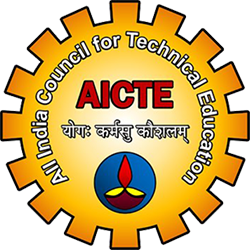
The modern world of business requires one to remain relevant and updated and hence a higher education in management is paramount for those who wish to ascend to leadership positions in business. The two most common choices that are usually in the spotlight are PGDM and MBA. Although both develop students’ managerial skills, in some perspectives, PGDM is more flexible and adapted to the industry and geared towards the practical demands of the job market. Each of these two courses is quite different from the other and here we would explore the differences and why a PGDM could be the better option for an aspiring executive.
Key Differences Between PGDM and MBA
To comprehend why the acquisition of a PGDM may be preferred, it is necessary to analyse the differences that separate it from an MBA. Both courses ensure that candidates are equipped for leadership. The differences are the curriculum offered, teaching methods and practice-oriented focus.
Affiliation and Accreditation:
An MBA is typically offered by universities and affiliated institutions and is regulated by university guidelines. On the other hand, a PGDM is provided by autonomous institutions approved by bodies like the All-India Council for Technical Education (AICTE). This autonomy allows PGDM programmes greater flexibility to adapt their curriculum to market demands and emerging industry trends.
Curriculum and Approach:
MBA is structured, given that the curriculum is set by university standards and doesn't change as frequently. On the other hand, the flexibility of the PGDM programmes has been established. They often update their curricula with new business trends, technologies, techniques and skills needed in the corporate world. This approach keeps PGDM graduates abreast with the current challenges in the market and equips them to handle them.
Focus on Practical Learning:
PGDM programmes include theoretical and practical aspects of management studies with the help of case studies, internships and live projects. It incorporates simulations and workshops which are actual hands-on insights of the real business world. While there are also applied components in an MBA, the emphasis is not as aligned with real-life business practices.
Industry Engagement:
Industry-focused PGDM programmes provide better alignment with the corporate world. PGDM-offering institutes often have industry tie-ups to work on course curriculum and invite eminent corporate speakers for lectures and placement opportunities. This guarantees that students embrace new market trends and have industry insights from experts and experienced professionals.
Why Choose a PGDM?
The advantages of a PGDM over an MBA are manifold, particularly for candidates who value adaptability, industry relevance and innovation. Below are key reasons why a PGDM could be the smarter choice:
Customised and Contemporary Curriculum:
The autonomous nature of PGDM institutions enables graduates to stay ahead of the curve. Students benefit from a curriculum tailored to the needs of emerging sectors such as fintech, artificial intelligence and data analytics. This relevance makes PGDM graduates highly sought after by employers.
Enhanced Employability:
The focus on practical learning and industry exposure ensures that PGDM graduates are job-ready. The integration of internships, live projects and mentorship programmes helps bridge the gap between theoretical knowledge and practical application.
Networking Opportunities:
The industry-oriented structure of PGDM courses allows students to interact with business leaders, alumni and peers from diverse backgrounds. These networks prove invaluable in shaping careers and identifying growth opportunities.
Focus on Leadership and Soft Skills:
In addition to technical competencies, PGDM programmes prioritise the development of leadership, communication and interpersonal skills. Such attributes are essential for excelling in managerial roles and adapting to dynamic work environments.
Global Perspective:
Many PGDM programmes offer international exposure through exchange programmes, collaborations and global case studies. This equips students with a broader understanding of global business practices, a critical asset in today’s interconnected world.
Conclusion
Another factor prospective students need to consider is the institution since it is as important as the programme. Sparsh Global Business School is one of the best options for pursuing a PGDM course. Future leaders prefer this institution due to its innovative curriculum, emphasis on partnerships with industries and committment to student development.
The PGDM programme of Sparsh Global Business School covers industry requirements and also creates a conducive learning environment for innovation and creativity. Business acumen with an emphasis on real-world insights exposes a student to the pragmatic world of business. In essence, for anyone who wants an opportunity that promises a radical learning experience, a PGDM at SGBS is quite the way forward.
FAQ
- Why is a PGDM considered more industry-relevant?
PGDM programmes frequently update their content to align with current business trends and incorporate practical learning through case studies, internships and industry collaborations.



